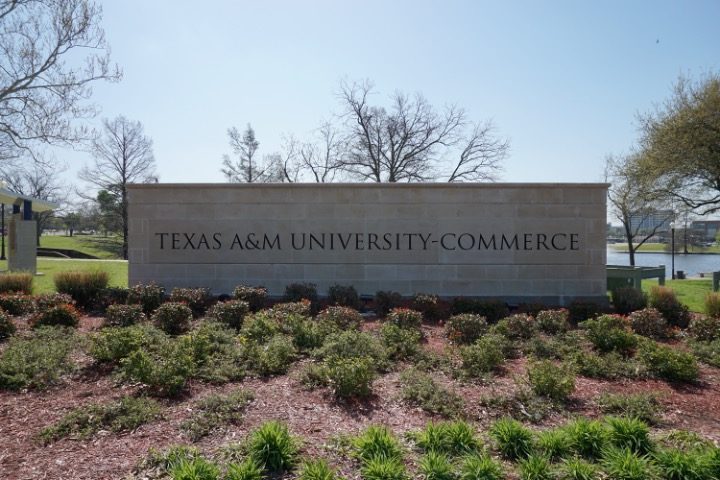
Texas banned DEI. But now conservatives in the Lone Star State are discovering that prohibiting Marxism in public institutions is only the first step; the challenge is implementing such a policy after the leftist rot has already become deeply rooted.
As Fox News reports, in response to a state law prohibiting diversity, equity, and inclusion (DEI) initiatives on college campuses, Texas A&M University awarded the department head a salary increase before transferring her and other staff members to different departments. This move has raised concerns that universities in Texas are trying to deepen the integration of the contentious practice despite the legal restrictions.
In June 2023, Texas Governor Greg Abbott enacted a law, SB 17, prohibiting DEI programs on college campuses. Subsequently, documents obtained by Fox News Digital revealed that Texas A&M University reassigned several DEI employees to different departments. Among them was the vice president of the program, who received a 10 percent salary increase, a new role, and a nine-month paid leave.
For example, one document obtained by means of a FOIA request showed that vice president for diversity Annie McGowan received a “5% salary increase in recognition of your performance.” And, to address “equality issues,” she was given an additional 5 percent.
The actions taken by universities in Texas following implementation of the DEI bill have sparked concerns that they are merely reassigning DEI officials while subtly allowing them to continue the Marxist indoctrination through other roles.
Dr. Stanley Goldfarb, chairman of Do No Harm, told Fox News: “The leadership at Texas A&M are doubling down on their fealty to DEI ideology instead of directing resources to programs that promote academic excellence.”
He continued:
Giving the former DEI head a raise explicitly on the basis of so-called equity and redistributing staff in the disbanded DEI department to other administrative jobs is an attempt to embed DEI into every department, blatantly ignoring the Texas law passed to ban such practices. This ideology is corrosive to the mission of and trust in our institutions of higher education. It must end.
Leadership at the university made clear that it remains committed to furthering DEI. Back in September, Texas A&M President Mark A. Welsh wrote:
Just to be clear, at Texas A&M, we will continue to maintain a welcoming environment for all, and we will continue to appreciate, respect and harness the unique perspectives each of you bring to this institution. Diversity of thought is a cornerstone of great universities, and, quite frankly, it’s a key ingredient to our continued success. Implementation of S.B. 17 will not change that.
In reaction to the bill, Texas universities initiated layoffs of DEI department staff. Republican state Sen. Brandon Creighton, the bill’s author, has cautioned state colleges to heed the legislation seriously and refrain from attempting covert maneuvers to circumvent it, lest they incur financial penalties.
A spokesperson for Texas A&M told Fox News Digital that 5 percent of McGowan’s raise was “standard merit increase for her work over the previous year” and that the other 5 percent was “a salary adjustment granted by the former president to ensure fairness and parity relative to her peers within the school where she teaches.” According to the spokesperson, the pay increases had nothing to do with DEI.
Republican state Rep. Brian Harrison said he has “extraordinary concerns that universities in Texas are doing everything they can to skirt our new law and continue promoting leftist divisive DEI at the taxpayers’ expense but just under a new name.”
He added, “We have all these leftist Marxist professors, and I want to get rid of them. Because I don’t want my constituents being forced to pay for that. If anyone wants to go study this leftist garbage, they can do that. But my constituents are not going to pay for that, over my dead body.”
Proponents of DEI claim it is a framework for promoting the creation of environments where everyone feels valued and has the opportunity to succeed. The ostensible aim of DEI is to foster innovation and creativity by bringing together people with different perspectives and experiences, improve decision-making by considering a wider range of viewpoints, and create a more just and equitable society for everyone.
But critics argue that DEI can lead to hiring or promoting people based on their race, gender, or other identity factors, rather than their skills and experience, in turn leading to less-qualified individuals being hired. Critics also make the case that efforts to promote “equity” might lead to discrimination against the majority group. For example, quotas or affirmative action programs in hiring might be seen as unfairly disadvantageous to certain demographics.
Still others argue that highlighting group differences through DEI programs can lead to a divided workforce, and that overemphasis on creating a comfortable and inclusive environment can take away from the focus on work performance and achieving results.




